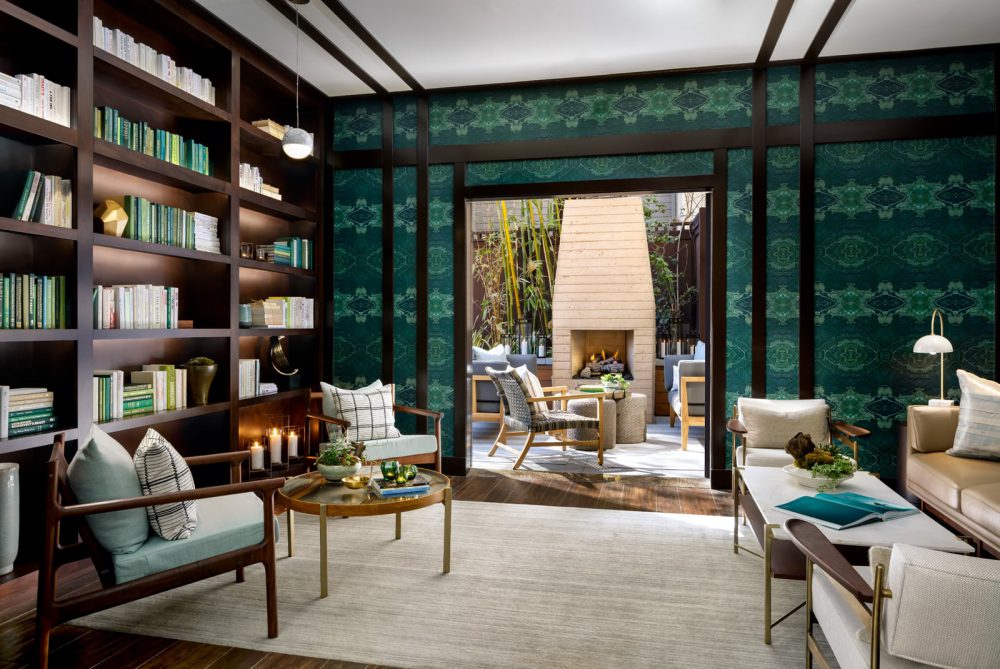Building a Hotel Brand That Guests Will Love
September 28, 2021
Jeremy Wells
In the world of hospitality, it frequently falls on hotel owners to do much of the heavy lifting required to establish a successful brand. Developing a brand identity can be one of the most difficult tasks for a hotel owner or developer. The number of factors that go into creating a brand are numerous, but also must be considered collectively. From hiring a hotel branding agency to creating an ambiance for the guest, many factors need to come together in order to create an impactful brand identity.
Ultimately, your hotel brand must connect with your target audience. It’s not about the building or the rooms. Your brand story should be human-centric, focus on the guest experience, and center around creating value for your travelers. To begin, you need to understand what drives people to hotels. Once you have identified your guest’s behavioral patterns, you can create a hotel brand centered around fulfilling guest needs and desires to provide an individualized guest experience.
1. Know Your Goals and Objectives as a Hotel
The first question to ask is, “Why are you developing a brand in the first place?” Why not just select from one of the big brand names, and opt for a turnkey solution? For many hotel owners, the answer is threefold. First, they want to create a brand that will appeal to customers and create an identity that will be memorable. Second, they want to differentiate their hotels from other properties in the area. Third, they want to create a brand that they’re proud of and can maintain control over.
This may seem like an obvious answer, but it’s important to realize why you’re creating a brand before you begin to develop one. If you know why you’re doing something, it should dictate the pathway you take to accomplish it.
Your goals and objectives help to set the tone for your brand development.
2. The Right Branding Team
The hospitality branding process is not an easy one. It requires the alignment of many different people with many different ideas, values, and ideals. After all, there are a lot of moving parts. What you are really doing is creating a team that will collaborate on the success of your project. Having a strong focus on value alignment can make or break your project’s success. With this in mind, you must find the right partners to collaborate with. You must feel like they truly understand you and your vision for the company and hotel experience. And knowing when to say no to a potential partner is just as important as finding the right ones in the first place.
3. Assess the Competition
Hospitality branding is a very specific industry where you have to have a very good understanding of the market segment you are going to target with your hotel. Your hotel will be competing for a share of a market that has many competitors, some that are local and then there are those that fly in from all around the world. If you have been tasked to brand a hotel, it is important to work out who your competitors are and what they do well so as not to make the same mistakes they have made.
There is no point in copying someone else’s business model as they already know what works and what doesn’t. You need to create a unique strategy that capitalizes on your competitive advantages. Before you actually begin, it is highly advisable that you do some research into the market segment that your hotel will be targeting. Research into this market will help you position your product or service correctly and also help you understand what this market wants from a hospitality product or service.
Researching your competitors can give you vital information on what they do well and how they could be improved upon. Visit competitor’s properties if possible and talk to their staff. You can gain invaluable information by doing this which will help you make any changes needed in your own hotel offering
4. Forge Strong Connections with Your Community
When you open a hotel in a place that’s known for something else, what is its brand and how do you let it stand out in the landscape of hotels and destinations? Does it fit into the neighborhood or is it distinctly different? How is it branded and how does that relate back to the neighborhood and city which it is in? Remember, hospitality branding is not just designing a logo or painting walls. It’s about the entire experience, creating a sense of place, and allowing guests to live life like a local.
Hospitality brands need to forge strong connections with the community.
Get to know the community – Hospitality brands need to forge strong connections with the community. This means that you need to understand the neighborhood, get to know artists, culture, musicians, business owners. Discover the essence and vibe of your surrounding neighborhood and let that be infused into the hotel property.
5. Building a Brand Identity is All About Storytelling, and Storytelling Has Rules
Storytelling is at the core of hospitality branding. A brand is more than a logo, it’s more than a name, and it’s more than an identity. It is a story. Our brains like stories. Stories help us make sense of the world around us. As consumers, we are faced with infinite options for how to spend our time and money every day. The easiest way for us to navigate that sea of choices is to rely on stories to simplify our decision-making.
Our brains like stories. Stories help us make sense of the world around us.
Do you want to be known for elegance? Luxury? Comfort?
Whatever you envision, use that as the basis for your hotel design, marketing campaigns, and staff training. Your brand identity encompasses everything from your look to your service quality to the way you treat guests. If it’s not consistent, customers will notice—and they won’t be impressed. Just like building a house or constructing a building, working on your brand takes planning—and time. But the results are worth it because once you have a strong brand identity in place, it can help drive repeat business.
6. Know Your Story and How it Relates to Your Audience
Hospitality branding is about building meaningful relationships with your customers. A strong brand creates an emotional connection between your guests and your hotel. It helps you to understand what they want from their stay, how they want to feel, and how that aligns with your brand narrative.
Identifying psychographics tells you more than just demographics do.
Identifying psychographics tells you more than just demographics do – it helps you understand characteristics like motivation and interests that are important to understanding how to attract and retain guests. Psychographics tell you why people travel – how they plan their trips, what activities they enjoy most. By understanding what makes this group of travelers different from others, you can build a distinctive brand identity that stands out from the crowd.
Bottom Line: Do it Right the First Time, Shortcuts Can Be Costly
Your brand is a critical driver of success for your hospitality business. In fact, 61% of business travelers and 57% of wealthier Americans say if they trust a brand, they go out of their way to purchase from them. The process of developing any successful brand requires preparation, research, creativity, and dedication. Hospitality brands have specific challenges that can be overcome with proper planning and implementation. It is imperative to establish a strong strategy for your brand prior to making expensive decisions.
Taking shortcuts while developing a brand can be very costly.
Shortcuts can harm the integrity of your brand, and trust isn’t easy to regain. For example, 35% of millennials say that they will never use a brand again if they lose trust in the brand. I’ve seen and heard too many examples of owners and developers wasting significant time, money, and energy spinning their wheels or delaying their projects by decisions that could have easily been avoided with a proper brand strategy in place.
Jeremy Wells
Partner at Longitude°
Jeremy is the author of Future Hospitality and Brand Strategist at Longitude°. As a member of the Education Committee for The Boutique & Lifestyle Leaders Association (BLLA) and a content contributor to Cornell University’s Hospitality Vision and Concept Design graduate program, he is a committed thought leader in hotel branding, concepting, and experience strategy.






